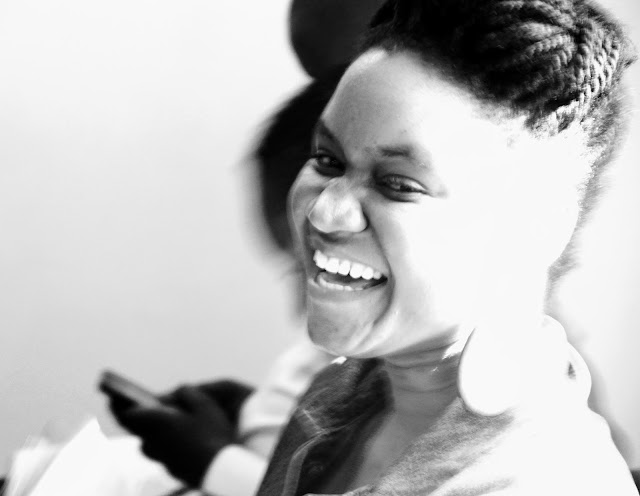B=Batsirai E Chigama
T=Tinashe Tafirenyika
B.Would you describe yourself in one word
T.Unusual
B.Tell us a bit about yourself
T
Not sure if it is vain to speak about
oneself in third person but Tinashe was born in Bulawayo in 1992. She went off
to the capital for college at the U.Z. in 2011 and in 2013 she stumbled upon
the Book Cafe Harare in the most serendipitous way imaginable. Three days later
she performed a poem in front of an audience for the first time at Sistaz Open
Mic (that was the first time she met Batsirai Chigama and Peggie Shangwa, two
amazing poets who went on to become her mentors and big sisters). She has been
performing poetry ever since and sometimes she publishes poetry online.
B.How did you feel to be nominated for the Spoken Word Category at NAMA?
T
I was mostly in shock. And denial. Which
lasted up till after I won the award. I suppose sometimes when something that
wonderful happens the brain just takes longer to process it. But now I am at
the stage of acceptance and it is a beautiful place to be.
B.What does this say for spoken word in general in Zimbabwe?
T
Spoken Word is here and it
is not going anywhere. The new urban type of performance poetry is now
recognized at the highest national level. Gone are the days when Imbongi
(praise poets) were the only recognized performance poets. This did not
start with this award, this is just one piece of a movement that has been going
on for a while and I am glad to be part of it.
B.Are you happy with the current state of spoken word in Zimbabwe?
T
Spoken Word is growing. It is difficult at
times to find a consistent space for it but whenever one shuts down another
pops up and the artists are resilient, the poetry fans eager. I don't know if I
am happy with the current state but I do believe that the future of spoken word
is bright in this country.
B.What more do you think should be done for spoken word?
T
Consistent spaces are necessary for the
nurturing and preservation of spoken word. Most poets were made at platforms
such as Mlom' Wakho Poetry Slam, House of Hunger Poetry Slam, Sistaz Open Mic
and P.O.T.. We need more of these platforms.
B.Who is your inspiration?
T
The people I love. They make writing worth
it.
B.What is your writing process like from idea, to writing to performance
delivery?
T
My writing process is very messy. It
normally begins with an idea, which can come from literally anywhere. Sometimes
it all floods in at once and I fill up a page in ten minutes. Other times it
simmers for months. The concept forms, words come together bit by bit, I edit
and re-edit, delete, join verses together, tear them apart, until it sounds
right. Then I stand in front of the mirror and recite until it sticks. Even
after rehearsing it sometimes takes a few shows before a piece feels
"right" and I never really stop changing it.
B.When your name was announced, tell us how you felt when you won the award?
T
I was numb. You could have hit me over the
head with a sledgehammer and I would not have felt it. It felt like a dream.
B.What would you like to tell aspiring young spoken word artists out there?
T
That they should write. And perfect their
art. There is no glory in mediocrity and its poetry, you don't need fancy
equipment or anything to pull it off so you have no excuse for being a terrible
writer. Regardless of how positive your message is, if your poems suck no one
will pay attention. And there are no shortcuts; the only way to become better
is to expose yourself to good writing and practice. With the Internet you have
no excuse, material from some of the best poets to ever live is literally a click
away so maybe spend less time on Instagram and visit Badilisha or something.
B.Where to from here?
T
Up, up and away. Hopefully we can take
spoken word to places that it has never been before.
By Batsirai E Chigama




















